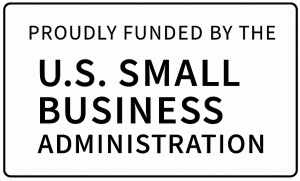Embarking on a construction project is a significant undertaking that involves careful planning, precise execution, and a keen eye for detail. However, even with the best plans and intentions, errors can occur, leading to costly delays and disputes. Understanding how to handle these mistakes effectively is crucial to maintaining your project’s timeline and budget.
In this article, we’ll delve into project management tips, quality control measures, and dispute resolution strategies to help you navigate the complexities of construction errors. Whether you’re managing a large commercial build or a home renovation, these insights will guide you in mitigating risks and addressing issues as they arise.

Design Flaws
Design flaws occur when there are mistakes or omissions in the architectural plans. These errors can lead to structural issues or non-compliance with building codes. It’s essential for designers and architects to conduct thorough reviews and peer evaluations of plans before execution. Regular collaboration with engineers and other professionals can also help identify potential design flaws early. Utilizing advanced software tools for modeling and simulation can further mitigate design-related risks.
Miscommunication
Miscommunication between team members, contractors, and stakeholders can result in misunderstandings about project specifications, leading to errors in execution. Establishing clear communication channels and protocols is vital. Implementing regular briefings and updates ensures everyone is on the same page. Using project management tools that track changes and updates can help maintain transparency and prevent information loss. Encouraging an open environment where team members feel comfortable voicing concerns or asking questions is also crucial.
Faulty Materials and Workmanship
Using substandard materials or poor-quality workmanship can compromise the integrity of the construction, resulting in defects or failures. Conducting thorough supplier evaluations and choosing vendors with a proven track record is important. Regular site inspections and quality checks can identify workmanship issues early. Investing in skilled labor and continuous training programs ensures that workers maintain high standards. Developing a robust relationship with suppliers and contractors can also lead to better quality assurance.
Project Management Tips for Error Prevention
Implementing strong project management techniques is essential to minimizing errors and ensuring a successful build.
Establish Clear Communication
Effective communication is vital in preventing errors. Ensure all parties involved in the project have a clear understanding of the plans and expectations. Regular meetings and updates can help keep everyone aligned. Utilizing digital communication platforms can enhance real-time collaboration and information sharing. Developing a communication plan that outlines how information will be disseminated ensures consistency and clarity. Encouraging feedback and regular check-ins can also address potential issues before they escalate.
Implement Quality Control Measures

Use Comprehensive Contracts
A well-drafted contract is a powerful tool in managing expectations and responsibilities. Clearly outline the scope of work, quality standards, and procedures for addressing errors or disputes. Including detailed clauses regarding timelines, deliverables, and penalties for non-compliance can protect all parties involved. Engaging legal experts to review contracts ensures they are robust and enforceable. Regularly updating contract terms to reflect changes in the project scope or industry standards is also advisable.
Handling Errors When They Occur
Despite best efforts, errors may still arise. Knowing how to handle them efficiently can prevent small issues from escalating into major problems.
Identifying and Documenting Errors
When an error is discovered, document it thoroughly. Take photos, note the location and nature of the error, and gather input from all relevant parties. This documentation is essential for assessing responsibility and determining corrective actions. Implementing a digital documentation system can streamline the process and ensure easy access to information. Encouraging team members to report errors as soon as they are detected minimizes the risk of escalation. Regularly reviewing and updating documentation practices keeps the process efficient and relevant.
Addressing Faulty Work Responsibility
Determining who is responsible for the error is critical. Is it a design flaw, a mistake by a contractor, or due to faulty materials? Once responsibility is established, work with the involved parties to develop a remediation plan. Open discussions and collaborative problem-solving can lead to quicker resolutions. Establishing clear guidelines for responsibility and accountability in contracts can prevent disputes. Documenting all discussions and agreements regarding responsibility and remediation is essential for future reference.
Remediation and Correction
Implement corrective measures as soon as possible to avoid further delays. This may involve revisiting design plans, replacing materials, or redoing work. Ensure that the corrections meet quality standards and are properly documented. Developing a timeline for corrective actions helps maintain project momentum. Engaging experienced professionals to oversee remediation ensures work is done to the highest standards. Regular follow-ups and inspections after remediation verify that issues have been resolved.
Dispute Resolution and Claims Process

Negotiation and Mediation
Before escalating to legal action, attempt to resolve disputes through negotiation or mediation. These processes are typically faster and less costly, helping to preserve working relationships. Engaging a neutral third-party mediator can facilitate constructive dialogue. Establishing ground rules for mediation ensures a respectful and focused process. Documenting the outcomes of negotiation or mediation sessions is important for accountability and future reference.
Construction Claims Process
If a resolution cannot be reached through negotiation, the construction claims process may be necessary. This involves submitting a formal claim for damages or corrective work. Ensure all documentation is thorough and accurate to support your case. Engaging experts to assess the situation can strengthen your claim. Understanding the legal framework and requirements for claims in your jurisdiction is essential. Preparing for potential arbitration or court proceedings involves strategic planning and evidence gathering.
Legal Steps After Construction Mistake
If disputes cannot be resolved through mediation or claims, legal action may be required. Consult with legal professionals experienced in construction law to guide you through the process and protect your interests. Understanding the potential outcomes and implications of legal proceedings helps in making informed decisions. Regular communication with your legal team ensures you are updated on progress and strategy. Exploring alternative dispute resolution options even during legal proceedings can lead to amicable settlements.
Best Practices for Future Projects
Learning from past mistakes can significantly improve future project outcomes. Implement the following best practices to enhance your project’s success.
Continuous Improvement
After completing a project, conduct a thorough review to identify what went well and what could be improved. Use these insights to refine your project management techniques and quality control measures. Creating a feedback loop with stakeholders provides valuable perspectives. Documenting lessons learned and sharing them with your team fosters a culture of improvement. Regularly updating processes and practices based on feedback ensures they remain effective and relevant.
Invest in Training and Development
Regular training and development for your team can help prevent errors and improve overall project performance. Stay updated on the latest industry standards and technologies to enhance your team’s skills and knowledge. Developing tailored training programs addresses specific skill gaps and needs. Encouraging certification and professional development opportunities motivates and empowers team members. Establishing a mentorship system within the team can facilitate knowledge transfer and skill enhancement.
Foster a Culture of Accountability
Encourage a culture where team members take responsibility for their work and feel empowered to speak up about potential issues. This proactive approach can prevent errors and foster a collaborative working environment. Implementing accountability measures and recognizing responsible behavior reinforces positive actions. Creating an environment of trust where team members feel valued and heard encourages open communication. Regularly revisiting and reinforcing accountability practices ensures they remain effective.
Conclusion
Construction projects are inherently complex, and errors can be costly if not handled properly. By implementing effective project management techniques, fostering clear communication, and utilizing comprehensive contracts, you can minimize the risk of errors. When mistakes do occur, addressing them promptly and professionally is crucial to maintaining project integrity and budget.
Remember, the goal is not only to complete the project but to do so with quality and efficiency, ensuring that all stakeholders are satisfied with the outcome. By embracing these strategies, you can navigate the challenges of construction projects with confidence and competence.




